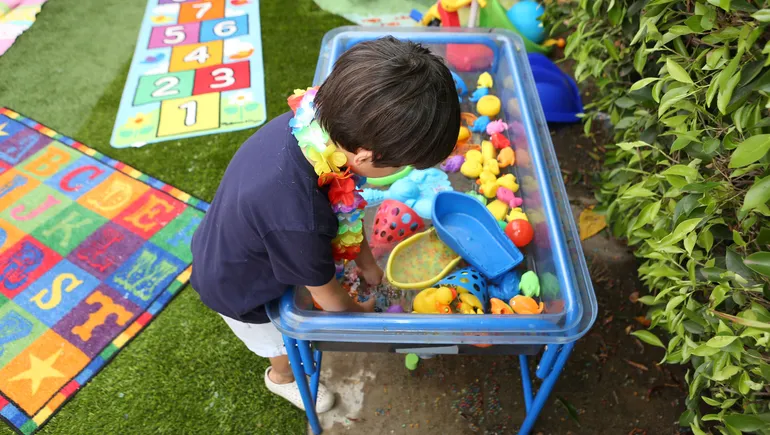Dive Brief:
- Placing Head Start early learning programs on community college campuses has the potential to support both young children and their college-going parents, said the National Head Start Association and the Association of Community College Trustees, which have partnered on technical assistance efforts for expanded programing.
- Called “Kids on Campus,” the five-year project launched this week with a user guide to help community colleges and Head Start programs connect, negotiate and launch successful partnerships.
- Locating Head Start programs on community college campuses could help overcome current barriers to affordable and quality early learning centers for children from low-income families, said NHSA and ACCT. However, they warned that financial and logistical issues will need to be addressed.
Dive Insight:
Insufficient child care and early learning opportunities present significant barriers for the 1.7 million parents attending community college, said Jay Nardini, chair of ACCT’s board of directors, in a statement. Nardini, who also chairs the board of Iowa’s Hawkeye Community College, said single parents in college typically have children under age 5 and would be eligible for Head Start services.
Currently, 130 community colleges house an Early Head Start program for children under age 3 or Head Start programs for 3- to 5-year-olds, according to NHSA. Head Start programs operate out of a variety of locations, including elementary schools, community centers, family-based care centers and colleges.
“Head Start and community colleges are two perfectly matched pieces of a complex puzzle, coming together to complete the picture of what comprehensive education can — and should — look like,” said Yasmina Vinci, NHSA’s executive director, in a statement.
Head Start programs operate out of a variety of locations, including elementary schools, community centers, family-based care centers and colleges. The federal Head Start and Early Head Start programs are available to children from birth through age 5 who are from low-income families.
Nationally, the program has more than 1 million children and 275,000 staff, according to NHSA.
NHSA and ACCT outlined possible benefits from the service partnerships, including:
- Free, high-quality child care and early education for qualifying community college parents.
- Expertise from Head Start to operate on-site child care.
- Head Start locations near target populations. On-campus sites could have free or drastically reduced rent, with the rent reduction used as an in-kind donation toward the program’s required 20% match of federal funds.
The Kids on Campus user guide shares examples from existing partnerships.
New Hampshire’s Manchester Community College, for instance, partners with Head Start provider Southern New Hampshire Services to operate an on-campus child development program with 14 slots for Head Start participants who are 3-5 years old. The child development center offers another 20 slots for children 6 weeks through 5 years old.
Manchester Community College students who are studying early childhood, nursing, psychology and other courses can use the child development center for student observation and practical experience. The Head Start classroom, which exists within the school’s child development center, operates part-day services on a school-year calendar. The non-Head Start classrooms, on the other hand, are open on a full-day, full-year schedule.
The challenges to partnerships, according to the user guide, include how to align college and Head Start schedules, as well as confusion from families over eligibility for services between the Head Start program compared to the child development center.
